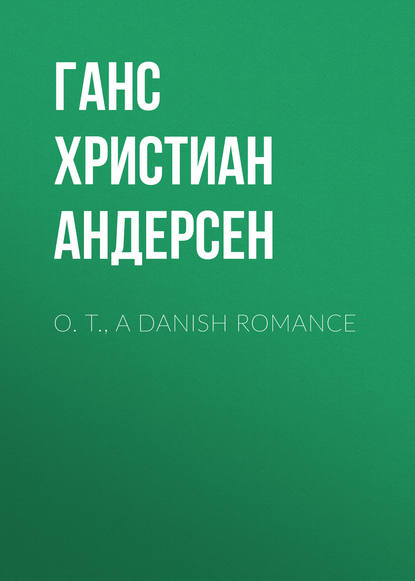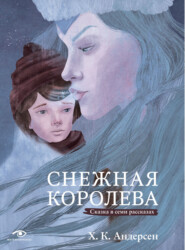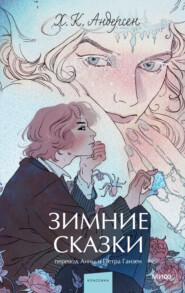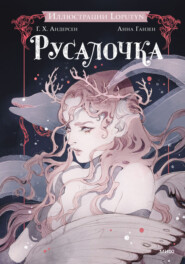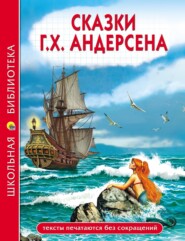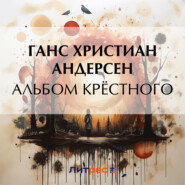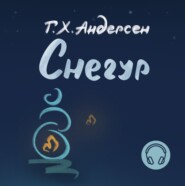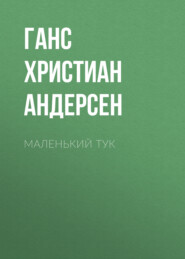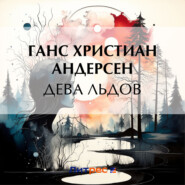По всем вопросам обращайтесь на: info@litportal.ru
(©) 2003-2024.
✖
O. T., A Danish Romance
Настройки чтения
Размер шрифта
Высота строк
Поля
“It is Baggesen himself; and truly as he must sing in that world where everything mortal is ennobled.”
“‘Meadows all fragrance, the strongholds of pleasure, Heaven blue streamlets,
That speed through the green woods in musical measure,’” began Otto, and the spiritual battle-piece with beauty and tone developed itself more and more; they found themselves in the midst of the winter camp of the Muses, where the poet with
…“lyre on his shoulder and sword at....
Hastened to fight with the foes of the Muses.” Otto’s gloomy look won during the perusal a more animated expression. “Excellent!” exclaimed he; “this is what I myself have thought and felt, but, alas! have been unable to express.”
“I am a strange girl,” said Sophie; “whenever I read a new poet of distinguished talent, I consider that he is the greatest. It was so with Byron and Victor Hugo. ‘Cain’ overwhelmed me, ‘Notre Dame’ carried me away with it. Once I could imagine no greater poet than Walter Scott, and yet I forget him over Oehlenschläger; yes, I remember a time when Heiberg’s vaudevilles took almost the first place among my chosen favorites. Thus I know myself and my changeable disposition, and yet I firmly believe that I shall make an exception with this work. Other poets showed me the objects of the outer world, this one shows me my own mind: my own thoughts, my own being he presents before me, and therefore I shall always take the same interest in the Ghost’s Letters.”
“They are true food for the mind,” said Otto; “they are as words in season; there must be movement in the lake, otherwise it will become a bog.”
“The author is severe toward those whom he has introduced,” said the lady; “but he carries, so to say, a sweet knife. A wound from a sharp sword-blade is not so painful as that from a rusty, notched knife.”
“But who may the author be?” said Sophie.
“May we never learn!” replied Otto. “Uncertainty gives the book something piquant. In such a small country as ours it is good for the author to be unknown. Here we almost tread upon each other, and look into each other’s garments. Here the personal conditions of the author have much to do with success; and then there are the newspapers, where either friend or enemy has an assistant, whereas the being anonymous gives it the patent of nobility. It is well never to know an author. What does his person matter to us, if his book is only good?
“‘Crush and confound the rabble dissolute That desecrate thy poet’s grave?’” read Otto, and the musical poem was at an end. All were enchanted with it. Otto alone made some small objections: “The Muses ought not to come with ‘trumpets and drums,’ and so many expressions similar to ‘give a blow on the chaps,’ etc., ought not to appear.”
“But if the poet will attack what is coarse,” said Sophie, “he must call things by their proper names. He presents us with a specimen of the prosaic filth, but in a soap-bubble. We may see it, but not seize upon it. I consider that you are wrong!”
“The conception of idea and form,” said Otto, “does not seem to be sufficiently presented to one; both dissolve into one. Even prose is a form.”
“But the form itself is the most important,” said the lady of the house; “with poetry as with sculpture, it is the form which gives the meaning.”
“No, pardon me!” said Otto; “poetry is like the tree which God allows to grow. The inward power expresses itself in the form; both are equally important, but I consider the internal as the most holy. This is here the poet’s thought. The opinion which he expresses affects us as much as the beautiful dress in which he has presented it.”
Now commenced a contest upon form and material, such as was afterward maintained throughout the whole of Copenhagen.
“I shall always admire the ‘Letters of a Wandering Ghost,’” said Sophie,—“always rave about these poems. To-night I shall dream of nothing but this work of art.”
How little men can do that which they desire, did this very moment teach.
When we regard the fixed star through a telescope and lose ourselves in contemplation, a little hair can conceal the mighty body, a grain of dust lead us from these sublime thoughts. A letter came for Miss Sophie; a traveller brought it from her mother: she was already in Funen, and announced her safe arrival.
“And the news?” said the hostess.
“Mamma has hired a new maid, or, rather, she has taken to be with her an amiable young girl—the pretty Eva in Roeskelde. Mr. Thostrup and Wilhelm related to us this summer several things about her which make her interesting. We saw her on our journey hither, when mamma was prepossessed by her well-bred appearance. Upon her return, the young girl has quite won her heart. It really were a pity if such a pretty, respectable girl remained in a public-house. She is very pretty; is she not, Mr. Thostrup?”
“Very pretty!” answered Otto, becoming crimson, for Sophie said this with an emphasis which was not without meaning.
The following day, at an early hour, Otto found himself at the merchant’s.
Spite of the changeable weather of our climate, all the ladies were in their best dresses. Three persons must sit upon each seat. Hans Peter and the lover had their place beside the coachman. It was a long time before the cold meat, the provision for several days, was packed up, and the whole company were seated. At length, when they had got out of the city, Christiane recollected that they had forgotten the umbrellas, and that, after all, it would be good to have them. The coachman must go back for them, and meantime the carriage drew up before the Column of Liberty. The poor sentinel must now become an object of Miss Grethe’s interest. Several times the soldier glanced down upon his regimentals. He was a Krähwinkler, who had an eye to his own advantage. A man who rode past upon a load of straw occupied a high position. That was very interesting.
Otto endeavored to give the conversation another direction. “Have not you seen the new poem which has just appeared, the ‘Letters of a Wandering Ghost?’” asked he, and sketched out their beauty and tendency.
“Doubtless, very heavy blows are dealt!” said Mr. Berger, “the man must be witty—Baggesen to the very letter.”
“The ‘Copenhagen Post’ is called the pump!” said Hans Peter.
“That is superb!” cried Grethe. “Who does it attack besides?”
“Folks in Soroe, and this ‘Holy Andersen,’ as they call him.”
“Does he get something?” said Laide. “That I will grant him for his milk and water. He was so impolite toward the ladies!”
“I like them to quarrel in this way!” said the merchant’s lady. “Heiberg will doubtless get his share also, and then he will reply in something merry.”
“Yes,” said Mr. Berger, “he always knows how to twist things in such a manner that one must laugh, and then it is all one to us whether he is right or not.”
“This book is entirely for Heiberg,” said Otto. “The author is anonymous, and a clever man.”
“Good Heavens! you are not the author, Mr. Thostrup?” cried Julle, and looked at him with a penetrating gaze. “You can manage such things so secretly! You think so highly of Heiberg: I remember well all the beautiful things you said of his ‘Walter the Potter’ and his ‘Psyche.’”
Otto assured her that he could not confess to this honor.
They reached Roeskelde in the forenoon, but Eva did not receive them. The excursion to Lethraborg was arranged; toward evening they should again return to the inn, and then Eva would certainly appear.
The company walked in the garden at Lethraborg: the prospect from the terrace was beautiful; they looked through the windows of the castle, and at length came to the conclusion that it would be best to go in.
“There are such beautiful paintings, people say!” remarked the lover.
“We must see them,” cried all the ladies.
“Do you often visit the picture-gallery of the Christiansborg?” inquired Otto.
“I cannot say that we do!” returned Mrs. Berger. “You well know that what is near one seldom sees, unless one makes a downright earnest attempt, and that we have not yet done. Besides, not many people go up: that wandering about the great halls is so wearying.”
“There are splendid pieces by Ruysdal!” said Otto.
“Salvator Rosa’s glorious ‘Jonas’ is well worth looking at!”
“Yes, we really must go at once, whilst our little Maja is here. It does not cost more than the Exhibition, and we were there three times last year. The view from the castle windows toward the canal, as well as toward the ramparts, is so beautiful, they say.”
The company now viewed the interior of Lethraborg, and then wandered through the garden and in the wood. The trees had their autumnal coloring, but the whole presented a variety of tints far richer than one finds in summer. The dark fir-trees, the yellow beeches and oaks, whose outermost branches had sent forth light green shoots, presented a most picturesque effect, and formed a splendid foreground to the view over old Leire, the royal city, now a small village, and across the bay to the splendid cathedral.
“That resembles a scene in a theatre!” cried Mrs. Berger, and immediately the company were deep in dramatic affairs.
“Such a decoration they should have in the royal theatre!” said Hans Peter.
“Yes, they should have many such!” said Grethe. “They should have some other pieces than those they have. I know not how it is with our poets; they have no inventive power. Relate the droll idea which thou hadst the other day for a new piece!” said she to her lover, and stroked his cheeks.
“O,” said he, and affected a kind of indifference, “that was only an idea such as one has very often. But it might become a very nice piece. When the curtain is drawn up, one should see close upon the lamps the gable-ends of two houses. The steep roofs must go down to the stage, so that it is only half a yard wide, and this is to represent a watercourse between the two houses. In each garret a poor but interesting family should dwell, and these should step forth into the watercourse, and there the whole piece should be played.”
“But what should then happen?” asked Otto.





